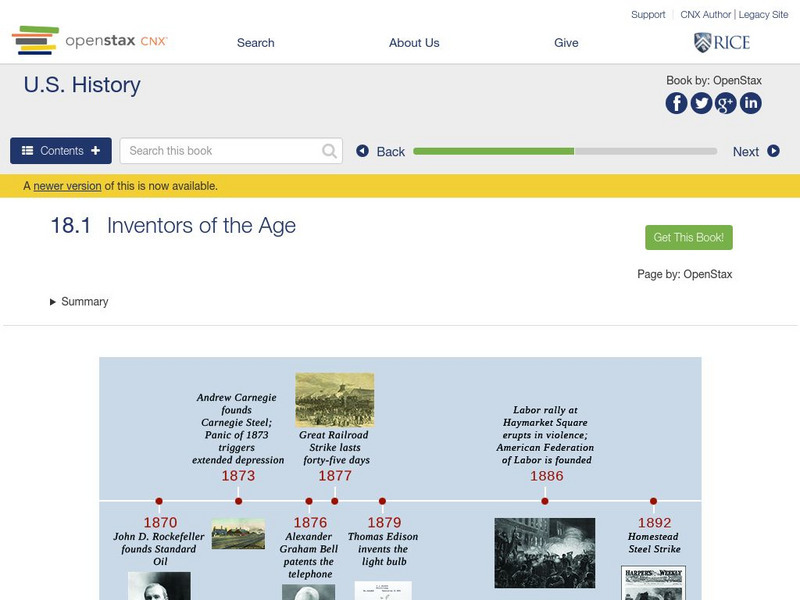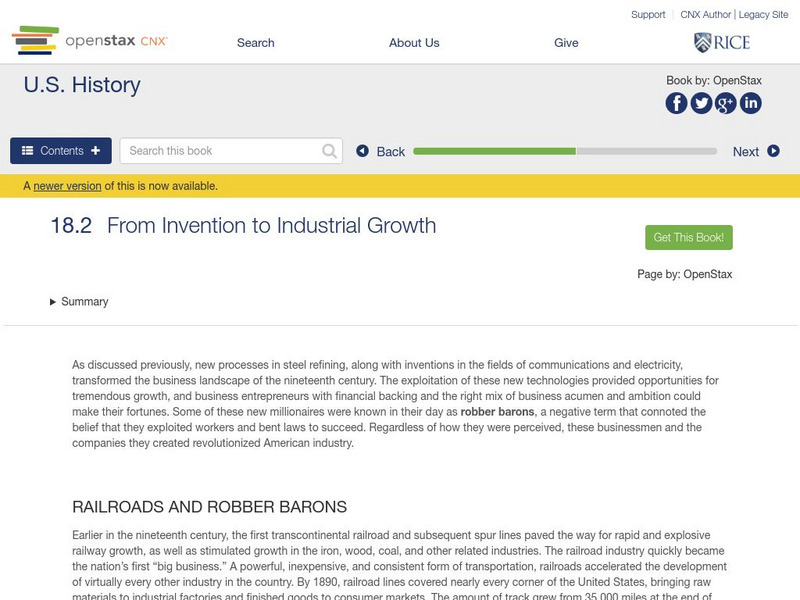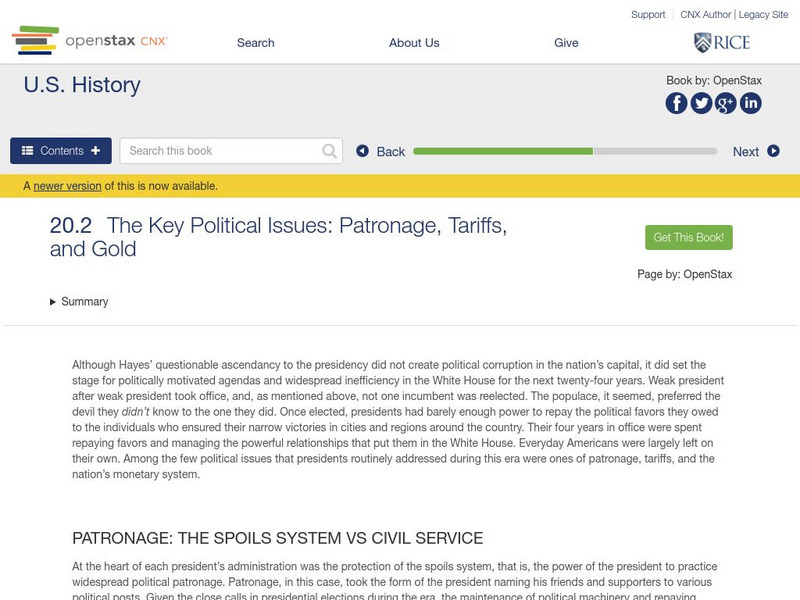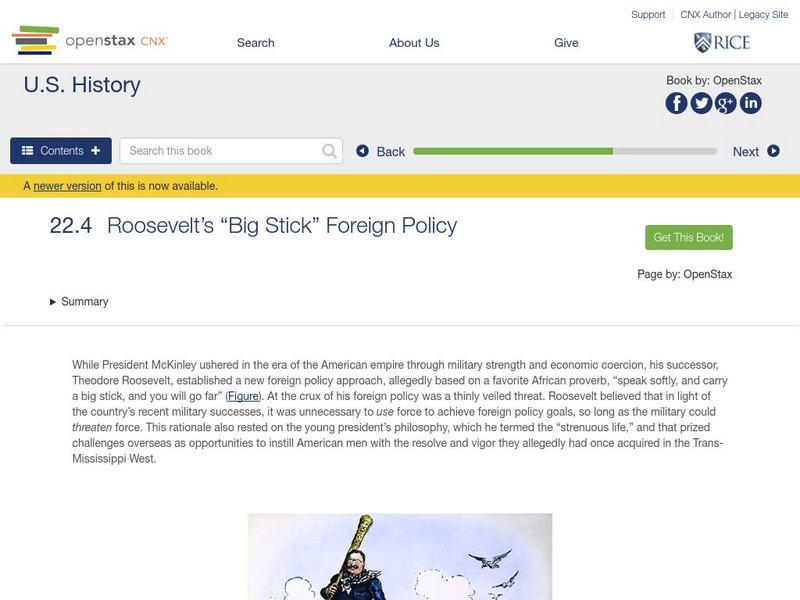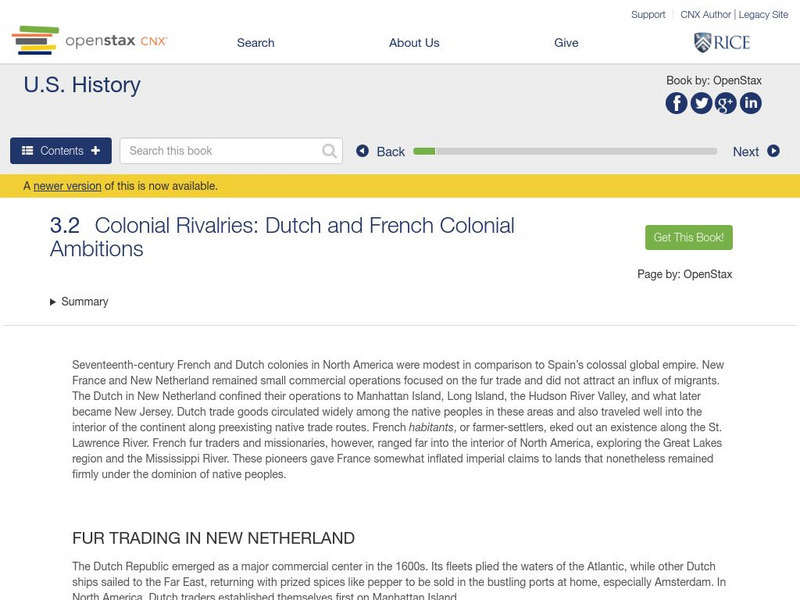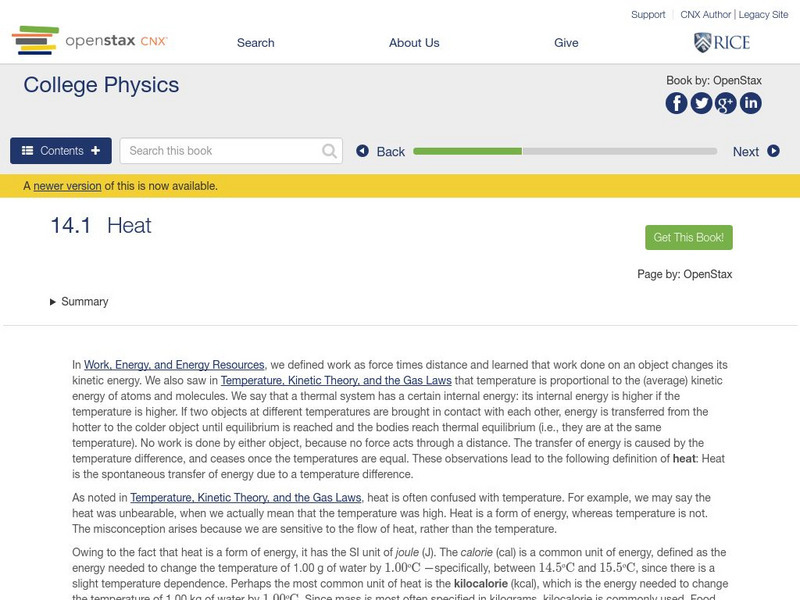Curated OER
National Park Service: Archaeology Program: The Earliest Americans Theme Study
This exhaustive study of Paleo-Indians examines many of the sites where evidence of their occupation is found across the North American continent. This National Park Service study looks at evidence in found in projectile points,...
The World Bank
World Bank Group: Income Inequality
This website examines the topic of income inequality and compares Brazil and Hungary. Lorenz Curves and Gini coefficients are used in this analysis. Includes a few discussion prompts.
University of California
The History Project: The Antinomian Controversy
One of the most enduring myths in American history is the belief that the Puritans fled to America in search of religious liberty. Unfortunately, this belief is at best only a half-truth, The Puritans were strict religious people who...
University of North Carolina
Nc Civic Education Consortium: Joe Mc Carthy and the Red Scare
This very detailed lesson plan incorporates small group activities, whole group activities, projects, debate ideas, and primary sources all related to Joseph McCarthy. Extensive background material is provided along with a bibliography...
Mount Holyoke College
Mount Holyoke College: Early Cold War Era u.s. Foreign Policy
In his article entitled "Economic Interests, Party, and Ideology in Early Cold War Era U.S. Foreign Policy", Benjamin O. Fordham discusses the United States' foreign policy during the Cold War, focusing on the country's ideology, party...
US National Archives
National Archives: Confronting Work Place Discrimination on the Wwii Homefront
African Americans were not able to take advantage of the booming industries as Americans were mobilizing for WWII. The FEPC was established to make sure Roosevelt's executive order providing for equal opportunities in defense industries...
OpenStax
Open Stax: Identity During the American Revolution
From a chapter on "America's War for Independence," this section of the chapter explains Loyalist and Patriot sentiments and identifies different groups that participated in the Revolutionary War.
OpenStax
Open Stax: Industrialization and Big Business, 1870 1900: Inventors of the Age
In the Industrial Revolution, new products and inventions spurred the growth of big business. Learn about some of these inventions and the people who created them, for example, Alexander Graham Bell and Thomas Edison.
OpenStax
Open Stax: Industrialization 1870 1900: From Invention to Industrial Growth
This section of the textbook describes how new inventions spurred industrial growth in the 19th century and discusses the business methods and models of Andrew Carnegie, John Rockefeller, and J. P. Morgan.
OpenStax
Open Stax: Industrialization 1870 1900: A New American Consumer Culture
Learn about the development of the consumer mindset at the end of the 19th century.
OpenStax
Open Stax: Gilded Age 1870 1900: Key Political Issues: Patronage, Tariffs, Gold
Political patronage was a big problem in the late 19th century and led to corruption within the government. This made it difficult to reform the civil service. Tariffs were another big issue and affected economic groups in different...
OpenStax
Open Stax: Foreign Policy 1890 1914: Spanish American War and Overseas Empire
Looks at the development and evolution of the Spanish-American War, at Americans' views on imperialism at the end of this war, and at the relationship of this war with America's other international interests.
OpenStax
Open Stax: Foreign Policy 1890 1914: Roosevelt's "Big Stick" Foreign Policy
The 'Big Stick' foreign policy of Theodore Roosevelt is explained, and how it was used in the building of the Panama Canal and to maneuver an end to the Russo-Japanese War.
OpenStax
Open Stax: Jazz Age 1919 1929: Prosperity and Popular Entertainment
Examines the transformation of American culture and lifestyle through movies, sports and the automobile, particularly the Model T Ford.
OpenStax
Open Stax: Jazz Age: Redefining the Nation 1919 1929: Transformation and Backlash
Examines the role nativism played in 1920s America, the resurgence of the Ku Klux Klan, the disconnect between urban and rural lifestyles and values, and the fractious debate over evolution that was highlighted in the Scopes trial.
OpenStax
Open Stax: Fighting the Good Fight in Wwii 1941 1945: Victory in European Theater
Examines the diplomatic negotiations among the Big Three leaders - Roosevelt, Churchill and Stalin - during World War II. Discusses the invasion of North Africa, the invasion of Europe, the shock of seeing the impact of the Holocaust...
OpenStax
Open Stax: Linear Momentum and Force: Linear Momentum
From a chapter on Linear Momentum and Collisions in a Physics textbook. This section of the chapter covers linear momentum, how momentum and force are related, how momentum fits into Newton's second law of motion, and how to calculate...
OpenStax
Open Stax: Colonial Rivalries: Dutch and French Colonial Ambitions
After reading a section of a chapter on "Colonial Societies," students will be able to compare and contrast the development and character of the French and Dutch colonies in North America and discuss their economies.
OpenStax
Open Stax: Contesting Futures: America in 1960s: Lyndon Johnson and Great Society
Read about the reforms and legislation undertaken through Lyndon B. Johnson's concept of the Great Society. These included economic and educational reforms, consumer protection, changes to immigration laws, and the Voting Rights Act of...
OpenStax
Open Stax: College Physics: Heat
In this section of the textbook, find information about how heat and work transfer energy. Also understand how a heat transfer is related to temperature and what mechanical equivalent of heat relates to work and heat transfer. Book can...
OpenStax
Open Stax: College Physics: Viscosity and Laminar Flow: Poiseuille's Law
Understand the difference between laminar and turbulent flow and what fluid viscosity is by studying this section of a College Physics textbook. Section includes how to use Poiseuille's law to calculate fluid flow in a tube. Section also...
OpenStax
Open Stax: Antebellum Communal Experiments
Read this section of a chapter on "Antebellum Idealism and Reform Impulses" to identify similarities and differences among utopian groups of the antebellum era and explain how religious utopian communities differed from nonreligious ones.
OpenStax
Open Stax: American Foreign Policy 1890 1914: Economic Imperialism in East Asia
As America's economic prowess grew, it was able to harness this power to expand its imperialistic arm into China. This mutually beneficial relationship lasted until after World War II when China became a communist country.
OpenStax
Open Stax: American Foreign Policy 1890 1914: Taft's "Dollar Diplomacy"
Examines how William Howard Taft replaced Roosevelt's 'Big Stick' policy with his own concept of 'dollar diplomacy' where he leveraged America's economic power against its imperialistic interests around the world.






